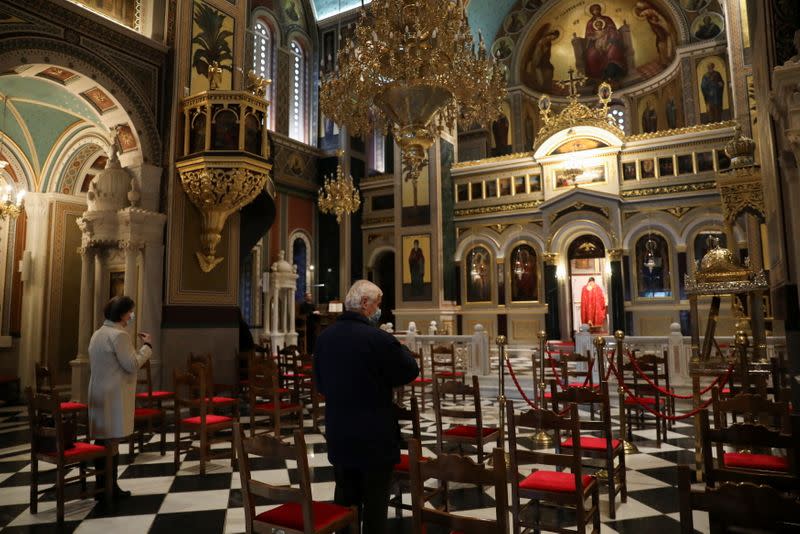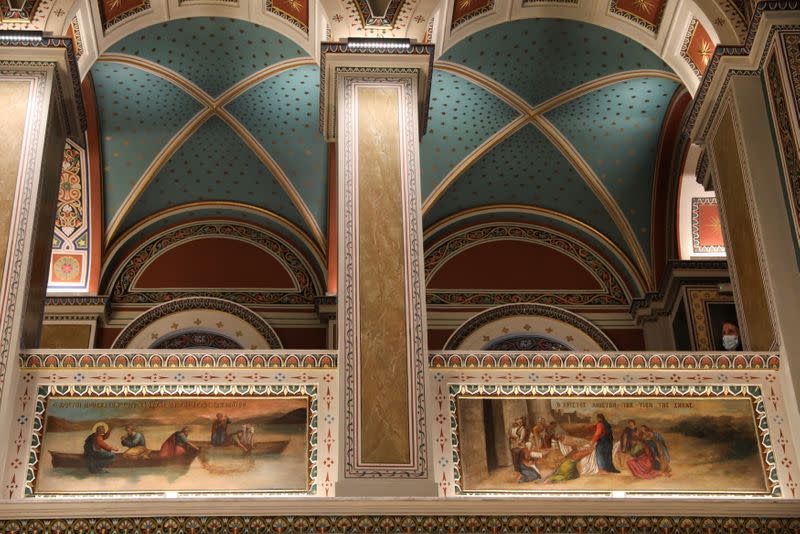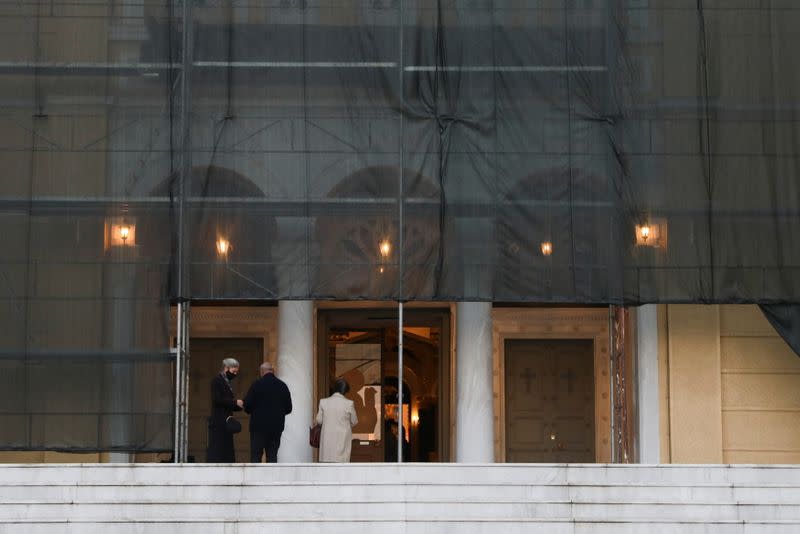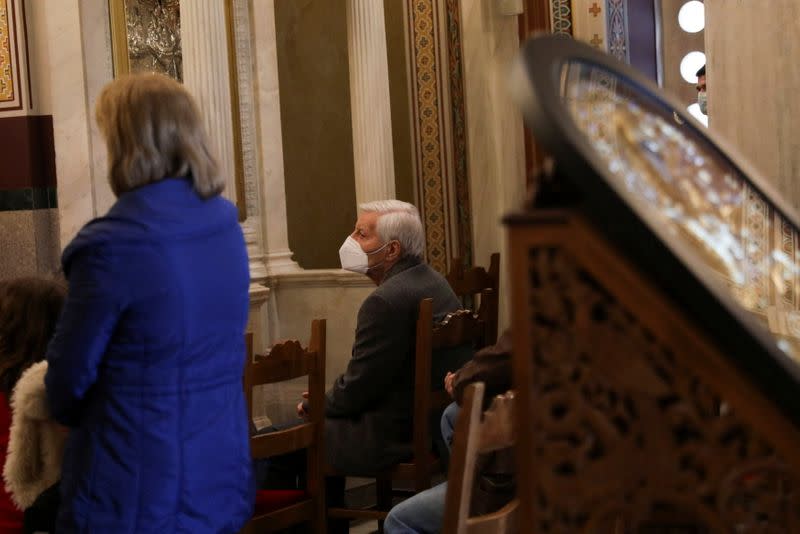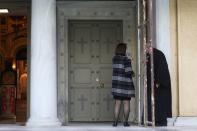Greece asks faithful to be COVID-clear to attend church
By Phoebe Fronista
ATHENS (Reuters) - Greece introduced new restrictions obliging churchgoers to present negative COVID-19 tests to attend services on Sunday following a surge in infections in recent weeks.
Under new rules announced on Nov. 18, unvaccinated people are barred from indoor spaces including restaurants, cinemas, museums and gyms, even if they test negative for the coronavirus.
In the case of churches, Sunday was the first day that those attending church service must present a negative test.
"(This is) to safeguard ourselves, and the people," said Father Christos, a priest at the Ayios Spiridon Church in the city of Piraeus.
"It might be a bit difficult, but we will persist. We are obliged to comply with everything."
Some churchgoers said fewer people than usual turned up for Sunday services because of the requirement that unvaccinated pay for their tests, a cost that could add up for those with families.
But out of four churches Reuters visited on Sunday, only one volunteer carried out checks, and that was with parishioners unfamiliar to them.
Greece has recorded a spike in infections this month, with daily cases hitting record highs. By Saturday, the country had recorded 920,683 infections, and 17,861 deaths since the start of the outbreak.
"I don't like it, but what can we do? We are complying, but the Church is empty today. Obviously people cannot endure the expense, coming here with their children, how much money will they have to spend?" said a woman called Athina.
Chrysoula Bezentakou said she believed people were afraid. "People don't want to do rapid tests, or vaccinations," she said. "I think its psychological."
(Reporting by Phoebe Fronista, Editing by Louise Heavens)

 Yahoo Finance
Yahoo Finance 